Below are the ORIGINAL, CORRECT versions of the editing challenges. Compare them to to the corrections you made.
Keep in mind there’s often more than one way to correct the same mistake. Just because your version is not identical to mine does not necessarily mean it is wrong. E-mail me with any doubts or questions – the first three consultations are FREE!
All editing challenges are adapted from https://www.dailytoday.com (2023) or https://www.history.com/this-day-in-history (2022).

Holidays this Month: In the Entrepreneurial Spirit
While Black Friday did not originally get its name because sales on that day were sure to bring lagging companies out of the “red” (or debt) and into the “black” for a profitable year’s end, that certainly seems true nowadays. Entrepreneurship Month in November is followed by Write a Business Plan Month in December. It’s Tie Month, as well, so dress to impress. Like it or not, the holiday season is good for business. Why not start your own?

Holidays this Month: In the Volunteer Spirit
It’s very easy to lose oneself in the materialism of modern Christmas traditions, but the holiday season isn’t supposed to be all about getting. December is the Month of Giving. Do you have any extra food or old clothes lying around your house? Reach out to a local charity. Even better, if you can afford it, buy a new toy and donate it still in the box. Remember that your time is just as valuable, and it’s Volunteers Month, too.

Holidays this Month: In the “Rights” Spirit
During the holidays, it’s extra important to love our neighbors and treat everyone with kindness, no matter where they come from or what they believe. Did you know that December is also Universal Human Rights Month? Additionally, Worldwide Food Service Safety Month promotes accountability in the restaurant industry to ensure access to clean, healthy food, and Safe Toys and Gifts Month reminds loved ones that disregarding age limits when it comes to picking out presents can be a fatal mistake.
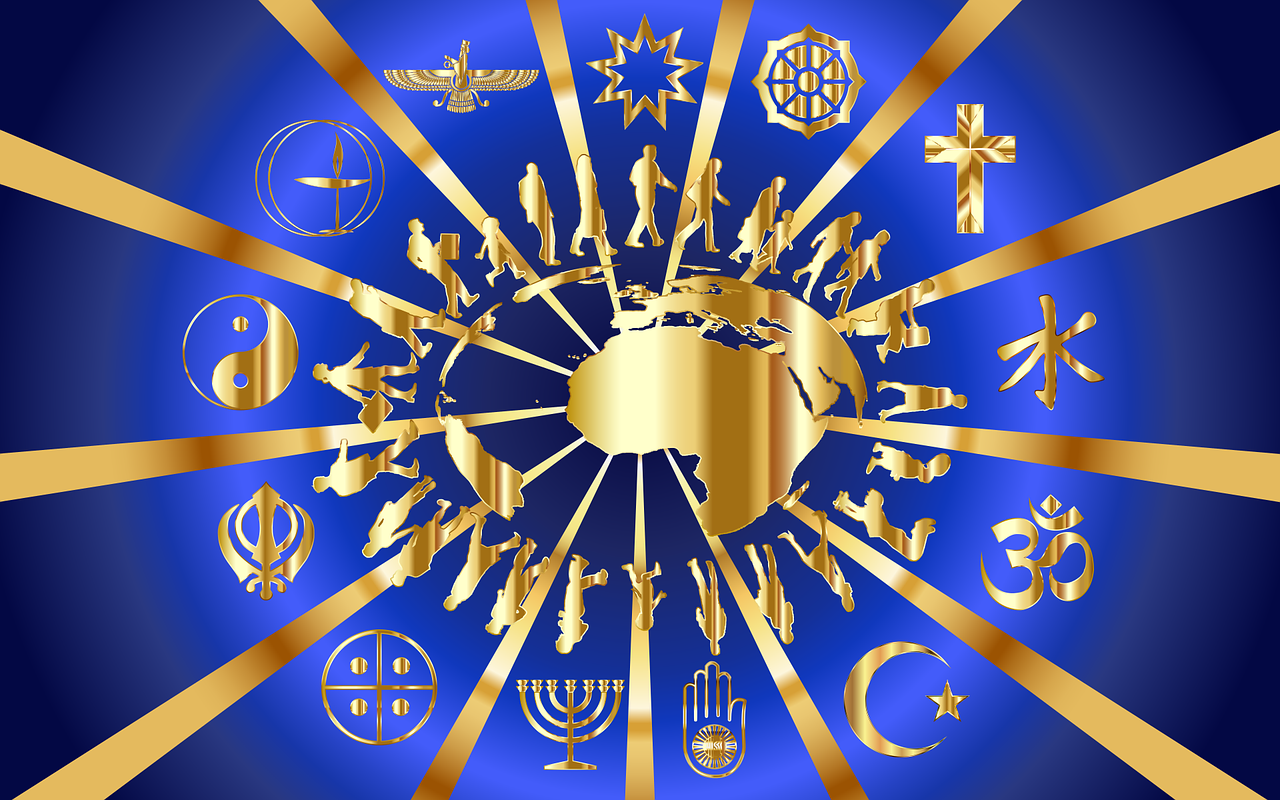
Holidays this Month: In Festive Spirit
Christmas gets (by far) the most attention this time of year, but it’s not the only major religious observance. There’s Hanukkah, of course, and Kwanzaa, promoting the cultural values of African communities worldwide. Buddhists meditate in observance of Bodhi Day, Muslims celebrate the birth of Muhammad, and followers of Zoroastrianism, the world’s oldest monotheistic religion, honor the death of Zarathustra. Don’t forget the Solstice, either. December is also National Drunk and Drugged Driving Prevention Month, so be smart and stay safe!

On This Day: December 1
Freezing-cold Antarctica may seem like the last place anyone would want to settle, but nations have fought over its vast resources, invaluable scientific potential, and adorable penguins since the nineteenth century. A few times, like in 1948, when Argentinian soldiers fired on British troops, all-out war seemed inevitable. To prevent disaster, the US proposed granting the United Nations authority over the entire continent, but no one else was willing to relinquish their claims. President Eisenhower persisted, nonetheless, and eventually convinced a dozen nations, including the USSR, to sign the Antarctic Treaty on December 1, 1959, banning all military activity within the area. Scientists alone could travel freely between any territory, regardless of nationality. Today, 53 countries govern Antarctica together.

On This Day: December 2
The Monroe Doctrine, introduced December 2, 1823, was a brazen bit of political initiative that helped define and protect our young nation. In brief, it forbade Europeans from interfering throughout the whole American hemisphere (north or south), while also asserting U.S. neutrality in future wars abroad. This worked surprisingly well, and the United States only had to go to war once, against Spain in 1898, to defend it. Today, we have more to worry about from Mother Nature than Mother England. Consequently, the Environmental Protection Agency also opened its doors on this same day in 1970. Their job is to investigate and address serious environmental abuse, ensuring that we’ll still have a country to protect in another hundred years.

On This Day: December 3
From the first skin transplant in 1869, it took eighty-five years for doctors to figure out how to do the same with live organs, like kidneys. After that, however, it wasn’t long before the first successful heart transplant, on December 3, 1967. Unfortunately, Louis Washkansky, a South African grocer, still died eighteen days later from pneumonia, but his new heart was functioning perfectly. This date also marks the very first SMS text message, in 1992. Neil Papworth’s simple message, “Merry Christmas,” had to be sent over the Vodafone network from a computer, and his colleague couldn’t respond from his phone yet, but texting is clearly another technology that has come a long way in a very short time.

On This Day: December 4
December 4 has been a consistently dark day throughout history, from Typhoon Pablo wiping out 1,000 Filipinos in 2012 to 4,000 residents of London dying in 1952 from heavy smog. Way back in 1533, three-year-old Ivan the Terrible was appointed Crown Prince after his father’s death. Gripped by raging paranoia, the first tsar of Russia killed and tortured tens of thousands of citizens from all levels of society. He even beat his pregnant daughter-in-law to the point of miscarriage and killed his own son when he tried to complain about it. Another mass-murdering dictator whose birthday just happens to be December 4 was Spain’s Francisco Franco. Appropriately, this day also marks the 1917 psychiatric debut of “shell shock,” today recognized as PTSD (“post-traumatic stress disorder”).

On This Day: December 5
Temperance, the movement to prohibit alcohol, began in the early nineteenth century, led by women tired of being powerless to do anything about drunk, abusive husbands. It took about a hundred years, but at last the 18th Amendment was ratified, and liquor banned, in 1920. Victory was short-lived, however, as drinking became more popular than ever. U.S. government agents used violent methods to try and enforce the law, even poisoning random bottles, but this just reinforced their “bad guy” image. Instead, gang bosses were celebrated as heroes, and NASCAR was born from bootleggers outrunning police cars. By the time the Great Depression hit, everyone had had enough. The 21st Amendment finally brought Prohibition to an end on December 5, 1933.

On This Day: December 6
The United States has had many presidents, but two names always stand out from the crowd. George Washington was our first, the only president ever elected unanimously. The Washington Monument, a 555-foot white-marble obelisk, was erected in his honor on December 6, 1884. In 1910, a city law was passed limiting the heights of all other buildings in Washington D.C. to ensure that this monument would remain the tallest. Abraham Lincoln’s passion – and sacrifice – for keeping our nation from splintering over the thorny issue of slavery will also never be forgotten. Without it, the 13th Constitutional Amendment would never have passed on this same date in 1865, permanently freeing all slaves. His own memorial was built in 1922.

On This Day: December 7
On December 7, 1787, little Delaware technically became the first state by unanimously ratifying the U.S. Constitution. A hundred fifty-four years later, however, in 1941, it became “a date which will live in infamy,” according to President Franklin D. Roosevelt. At 7:55 that morning, 360 Japanese bomber planes appeared on the horizon without warning and left a swath of destruction across the U.S. naval base at Pearl Harbor, Hawaii. Besides rendering much of the Pacific fleet useless, 2,400 Americans were killed; meanwhile, the Japanese lost fewer than 100 men. The very next day, an enraged nation – staunchly neutral up until that point – declared war on Japan, plunging us into the middle of World War II.

On This Day: December 8
Growing up poor in Liverpool, England, was never easy, but that didn’t stop John Lennon, Paul McCartney, George Harrison, and Ringo Starr from rising to stardom and changing popular music forever. Many consider the Beatles the single most influential band of all time. Their American debut on “The Ed Sullivan Show” in 1964 was seen by over 70 million fans, and they’ve sold over 600 million records. The golden days couldn’t last forever, though, and the band broke up in 1970. Then, on December 8, 1980, an even greater tragedy struck when Lennon was shot by an obsessed fan right outside his Manhattan apartment. His death was mourned all over the world, but at least his music lives on.

On This Day: December 9
Smallpox, or something like it, plagued humankind for thousands of years, killing millions around the world annually. The Egyptian Pharoah Ramses V died of a variation way back in 1145 BC, and it played a huge role in wiping out Native American populations after the arrival of Europeans, with mortality rates as high as 90% in some communities. The Chinese had already developed an inoculation to protect themselves by the 16th century, but Edward Jenner’s 1796 vaccine was unique for not spreading to others. Thanks to this miracle of modern medicine, the last case of smallpox was diagnosed in Somalia in 1977, and on December 9, 1979, the World Health Organization declared the disease completely eliminated, once and for all.

On This Day: December 10
Everyone’s a winner on December 10 (also known as Human Rights Day)! Most famously, this is the date that Nobel Prizes have been awarded every year since 1901, recognizing those who make our world a better place. That’s not all there is to celebrate! Believe it or not, Ford produced its one-millionth car on December 10, 1915; the 1898 Treaty of Paris recognized U.S. victory in the Spanish-American War; Wyoming women were the first in the U.S. to win the right to vote in 1869; and in 1922, the Canton Bulldogs won the inaugural NFL championship. More recently, this is also the day, in 2009, that “Avatar” premiered in theaters, going on to become the highest-grossing film in history.

On This Day: December 11
In wars, children often suffer the most. This was certainly true on both sides of World War II. The newly-minted United Nations therefore made it a priority to establish an international children’s emergency fund – UNICEF – on December 11, 1946, to support youths in need as Europe set about rebuilding itself. “There are no enemy children,” insisted founding director Pate. By 1950, it expanded its mission to the rest of the world, too, and began promoting projects to improve sanitation conditions, eliminate preventable diseases, and protect universal rights. Their 1989 Convention on the Rights of the Child became the most widely ratified treaty of its kind in history; remarkably, the United States was the only member state to not support it.

On This Day: December 12
Two years after the “Mona Lisa,” was stolen, police finally recovered Leonardo da Vinci’s famous painting in Italy on December 12, 1913. Then, on this same day in 1980, one of his notebooks sold for over $5 million. Of course, Da Vinci probably would have been equally impressed by Guglielmo Marconi’s success sending the first radio signals across the Atlantic Ocean, also on this date in 1901. Popular belief held that the Earth’s curvature made transmission farther than 200 miles impossible, and it’s true that radio waves can’t bend. Nevertheless, not fully understanding what he was doing yet, Marconi, in England, was still able to bounce a simple Morse-code letter “s” off the atmosphere’s ionosphere, and back down to Canada.
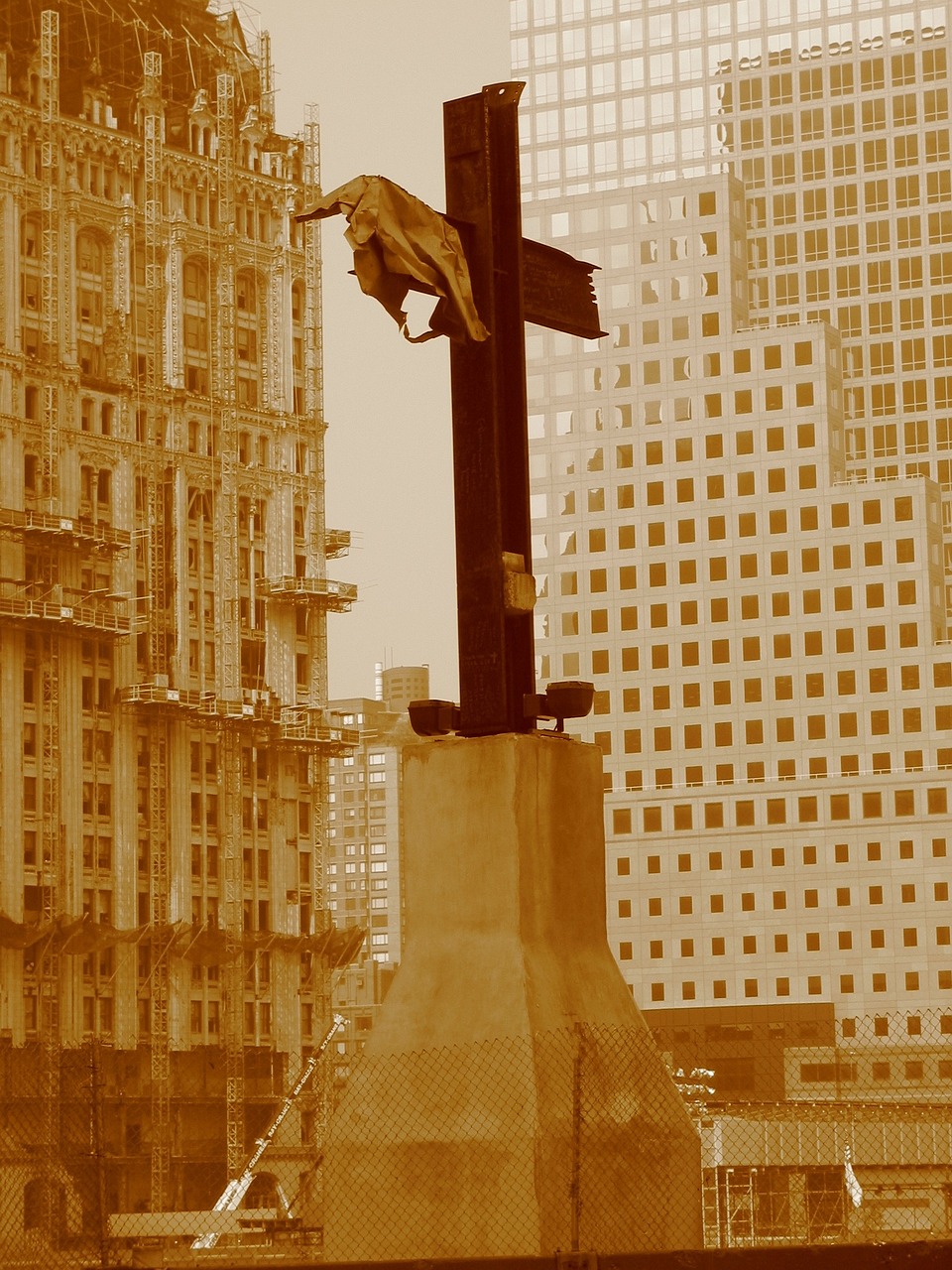
On This Day: December 13
While the Holocaust and other atrocities perpetrated by Nazis during World War II are generally well-known, much fewer are familiar with the equally-horrifying acts condoned by their Axis-power ally in the Far East. December 13, 1937, for example, marks the Rape of Nanjing, when Japanese soldiers burned the former Chinese capital to the ground, massacring two hundred thousand men, and abusing at least twenty thousand women and girls. The three thousand U.S. civilians who died on September 11, 2001, pales in comparison, but American outrage was just as strong. We started a war, and hunted the operation’s elusive mastermind, Saddam Hussein, for two years. He was finally discovered hiding in a six-to-eight-foot-deep hole, also on December 13, 2003.

On This Day: December 14
Do you know who the first person to reach the North Pole was (besides Santa, of course)? No one does, actually. Two separate American teams claimed that honor a mere week apart from each other in 1909, but it’s not an easy thing to prove. While Robert Peary and Frederick Cook were fighting out their differences, Norwegian Roald Amundsen changed his own plans and decided to go find the South Pole instead. He also had to face stiff competition (figuratively at first, and then literally, since Robert Scott’s team froze to death), but finally, on December 14, 1911, Amundsen planted his flag on Antarctic soil. He eventually made it to the North Pole, too, via dirigible fifteen years later.

On This Day: December 15
Do you know your Bill of Rights? Despite promising to “promote the general welfare,” the U.S. Constitution doesn’t really talk much about “We the People” after the introduction. Many states only agreed to ratify it, therefore, if a bill clarifying basic citizen rights were added posthaste. Two years later, on December 15, 1791, ten out of the twelve proposed amendments passed into law. That’s right – two didn’t make it! One, that Congress couldn’t give itself any pay raise without voter consent, was just recently approved in 1992 as the 27th Amendment. The other rejected “right” would have limited congressional districts to less than 50,000 citizens, meaning we’d have more than six thousand representatives today. How many do we have instead?

On This Day: December 16
The British are known for being composed and polite, but never mess with their tea! When King George tried to tax this, we Americans stubbornly switched to coffee, a cultural preference that continues to this day. About sixty “Sons of Liberty” took things even further when they dressed up as Native Americans and dumped one hundred thousand pounds of tea into the Boston Harbor on December 16, 1773. This was the final straw for the King, who lashed back with the Intolerable Acts, imposing strict military rule and crippling the city’s economy. Instead of crushing revolutionary spirit as he had hoped, however, it fanned public outrage even hotter, convincing the colonists once and for all that Britain had to go.
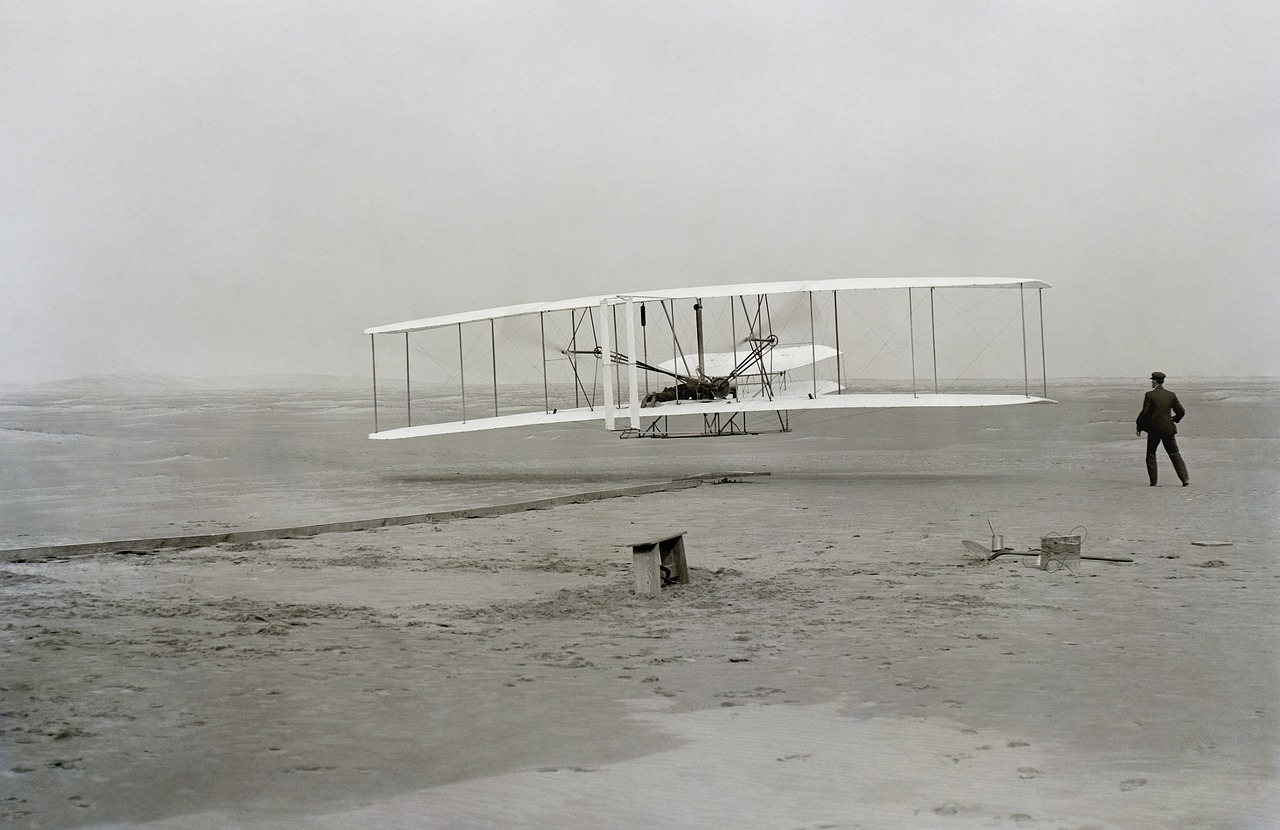
On This Day: December 17
Learning the first plane only stayed aloft for 12 seconds during its inaugural flight on December 17, 1903, doesn’t really sound that impressive. Nonetheless, it took brothers Orville and Wilbur Wright years of experimenting to get that far. They even built their own wind tunnel. What’s more, by the end of the day they were up to a whole minute, and within two years, their plane could remain in the air for up to 39 minutes. Hollywood stuntman Stan Barrett may have overcome another seemingly-impossible boundary of physics this same day in 1979 by breaking the sound barrier for the first time on land. The Air Force clocked him at nearly 740mph, but the official speedometers malfunctioned, resulting in controversy.

On This Day: December 18
Fun fact: The Tokens’ “The Lion Sleeps Tonight,” which was adapted from a recording by South African Zulu singers, hit number one on the Billboard pop chart the same date in 1961 that the newly ratified 13th Amendment officially outlawed slavery in 1865. President Lincoln’s earlier Emancipation Proclamation had already declared America’s enslaved population “then, thenceforward, and forever free,” but it lacked Constitutional authority. This is also the day Donald Trump was impeached (the first time) for foreign election interference in 2019 (almost exactly eleven years after Clinton), and the Pilgrims docked the Mayflower at Plymouth Harbor in 1620. Who shows up in Massachusetts in December expecting to build a town from the ground up? People who got lost on their way to Virginia – that’s who.

On This Day: December 19
It was a cold day on December 19, 1777, when General Washington ordered his defeated, bedraggled troops to set up a long-term camp at Valley Forge, Pennsylvania. Without enough supplies to provide even shoes for many of his men, 11,000 would perish there by winter’s end. It was nearly as cold as Ebenezer Scrooge’s soul. Charles Dickens’ most widely adapted protagonist debuted on this same day in 1843 with the first printing of “A Christmas Carol.” December 19 also marks the 1917 premiere of the National Hockey League. Two games (both won by Canadians) were played that first day, but which went first was forgotten by history and became the subject of controversy for years, not settled until 2017.
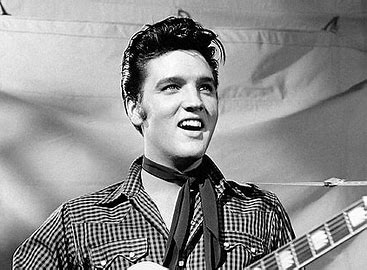
On This Day: December 20
Did you know that Elvis Presley served in the Vietnam War? After he received his draft notice on December 20, 1957, tens of thousands of fans sent letters to the army begging to make an exception for the famous singer, but Elvis was proud to support his country. Of course, no one sends celebrities to the front lines; he served out his eighteen months in Germany, hosting big parties at his off-base residence most nights. Here he met his future wife, then-fourteen-year-old Priscilla Beaulieu. If it had been 1989, he might have been shipped to Panama instead to take out the dictator, a much shorter invasion that lasted from December 20 to January 3 and cost just 26 U.S. lives.

On This Day: December 21
What do you do with a bunch of rowdy school boys already bouncing off the walls after just a few weeks of cold weather? Back in 1891, they didn’t have that many options, so James Naismith, a Canadian P.E. teacher working in Springfield, Massachusetts, invented a new sport – basketball. On December 21, he nailed a peach basket to a ten-foot-high balcony, divided his eighteen students into two teams, and gave them a soccer ball to toss around. Nowadays, we’ve got the internet to keep us busy, so bored boys can just jump on YouTube instead. On this day as well, in 2012, Korean rapper Psy’s memorable hit “Gangnam Style” shattered records, becoming the first video to earn one billion views.

On This Day: December 22
Duh-duh-duh-duuum! Few composers are as iconic to Western classical music as Ludwig van Beethoven. Despite popular belief, he didn’t actually start losing his hearing until he was twenty-eight, at which point he had already made a name for himself in the musical world. As sound started to fade from his world, many would have given up, but Beethoven fought heroically against all odds, and some of his greatest works were composed after he had gone completely deaf. One of his most recognizable masterpieces is the Fifth Symphony, which premiered on December 22, 1808. The theater was freezing and the orchestra had to stop halfway and start over after three hours, but Beethoven was used to that kind of bad luck.

On This Day: December 23
Vincent van Gogh had perfect hearing, but that didn’t stop him from cutting off his left earlobe on December 23, 1888. While he may be considered an artistic genius today, Van Gogh sold only one painting during his entire lifetime, resulting in severe depression. Earlier that year, the Dutch native had rented a house in Arles, France, hoping to found an artists’ colony, but high tensions led to him threatening a friend, Paul Gauguin, with a knife, before turning it on himself. Van Gogh then, allegedly, gifted the ear to a prostitute and checked himself into a mental institution. There, he painted “Starry Night.” Unfortunately, it wasn’t enough, and Van Gogh shot himself two years later, dying at age thirty-seven.

On This Day: December 24
The “Puffing Devil” was the world’s first steam-powered passenger vehicle, created by British inventor Richard Trevithick on December 24, 1801. A real devil, however, wrapped in robes of white, would emerge exactly sixty-four years later in Pulaski, Tennessee, when a group of Confederate veterans vowed to preserve their power and status by any means necessary. They used the Greek word “kyklos” (circle) to fashion the name Ku Klux Klan, and elected Nathan Bedford Forrest as their leader. By 1869, even Forrest was so disturbed by their violent tactics, like murdering entire families of black ex-slaves in the name of racial superiority, that he tried to disband the group. Sadly, the KKK continues to lurk in the shadows to this day. This Christmas, I hope you choose love instead of hate.

On This Day: December 25
December 25 is celebrated worldwide as Jesus Christ’s birthday (unless you’re Orthodox Christian, in which case you have to wait another two weeks to open presents), but nobody really knows when he was born. Even the year 6 B.C. is uncertain. No mention was made of the Nativity at all until 336 A.D. (ironically, around the same time that real-life Saint Nicholas lived), at which point the Church simply latched onto Saturnalia, a popular pagan celebration of the winter solstice, and made it their own. A few notables who really were born on this day include apple-loving physicist Isaac Newton, Red Cross founder Clara Barton, actor Humphrey Bogart, songwriter Jimmy Buffet, and “El Chapo” Guzman, the Mexican drug lord.

On This Day: December 26
No, Boxing Day has nothing to do with throwing punches. This British tradition, celebrated the first weekday after Christmas, usually on December 26, began back in the Middle Ages as a day to collect money for the poor – in alms boxes. Now, it has become more of a shopping holiday. In the U.S., we invented Kwanzaa instead. Maulana Karenga, the chair of Black Studies at California State University, was greatly disturbed after the deadly Black Watts Riot of 1965, and wanted a way to heal the African American community. Kwanzaa combines aspects from a variety of African harvest celebrations and highlights seven cultural values over the course of seven days: unity, self-determination, collective responsibility, economic cooperation, purpose, creativity, and faith.
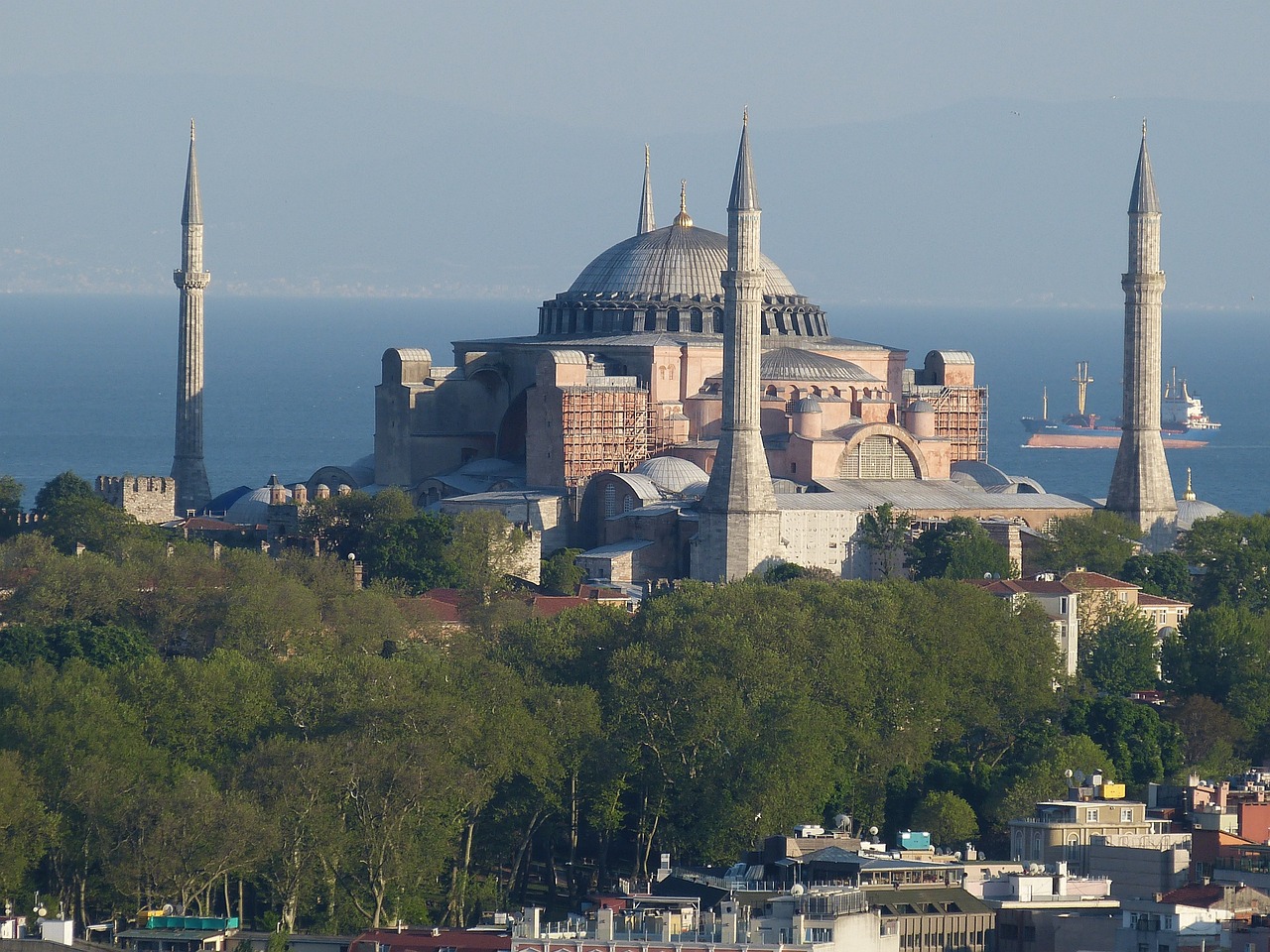
On This Day: December 27
If walls could speak, the Hagia Sophia would talk your ear off. This breathtaking Istanbul landmark was the largest church in the world for almost one thousand years, before being converted into an Islamic mosque for another five hundred. It almost didn’t make it past forty, though. The original structure was constructed in 360 A.D., shortly after the city’s founding, but burned to the ground during riots mere decades later. It was rebuilt in 415, but destroyed again after little more than a century. The final iteration that we see today was rebuilt bigger and better by the great Emperor Justinian, and dedicated on December 27, 537. Today it serves as a museum, celebrating both its Christian and Muslim past.

On This Day: December 28
Invention magnate Thomas Edison patented the first motion-picture camera in 1890, and even a movie studio to go along with it, but the fatal flaw in his Kinetoscope was that people could only view the films through tiny peepholes, one at a time. After seeing one demonstrated, Antoine Lumiere, the owner of a photographic plate factory in France, went home and told his two sons that they could do better. The Lumiere brothers, Louis and Auguste, developed their own camera, the Cinématographe, to work with a projector that could display moving images on screen for a large audience. They subsequently opened the earliest cinemas and premiered the world’s first commercial movie in Paris on December 28, 1895.

On This Day: December 29
American westward expansion was full of shady deals and violence. When Moses Austin requested 200,000 acres to settle U.S. citizens in Texas in December 1820, he just wanted to make a quick buck. Soon, Americans outnumbered Mexicans and, as in Hawaii, local businessmen decided to seize the government for themselves. Texas officially joined the United States on December 29, 1845, prompting war with Mexico. Native Americans also suffered terribly during this time, so many started participating in traditional “ghost” dances to appease their gods. Famous Sioux leader Sitting Bull was killed while resisting arrest related to these on December 15, 1890. Even worse, two weeks later, more than 150 men, women, and children were massacred by soldiers at Wounded Knee.

On This Day: December 30
Grigori Rasputin is one of history’s more colorful characters. Despite being born a peasant, he wormed his way into Russia’s royal family by claiming supernatural healing powers. The drunk, corrupt, lecherous “holy man” ruled in all but name after Czar Nicholas left to fight World War I. On December 29, 1916, the other nobles decided they’d had enough. They tried poisoning and shooting him, but nothing worked! They had to tie him in a bag and throw it in a river. In the end, it didn’t even matter because the royal family was overthrown just a few months later. Ten years after that, in 1922, the Union of Soviet Socialist Republics was officially born on this same date as well.

On This Day: December 31
For centuries, Great Britain dominated most of the world, and London remains one of the most influential cities. You’re reading English right now, after all, aren’t you? That wasn’t always the case. On December 31, 1600, when Queen Elizabeth established the East India Company to compete with the Dutch, Britain was the underdog; a nobody, as far as global powerhouses India and China were concerned. How did the tides shift so drastically? The EIC shrewdly lent out its private military force to local Moghul city states, gradually growing their political influence. They also instigated the Opium War with China, resulting in English control over Hong Kong. The EIC was dissolved in 1874, but the Crown continues benefiting from their dubious dealings today.